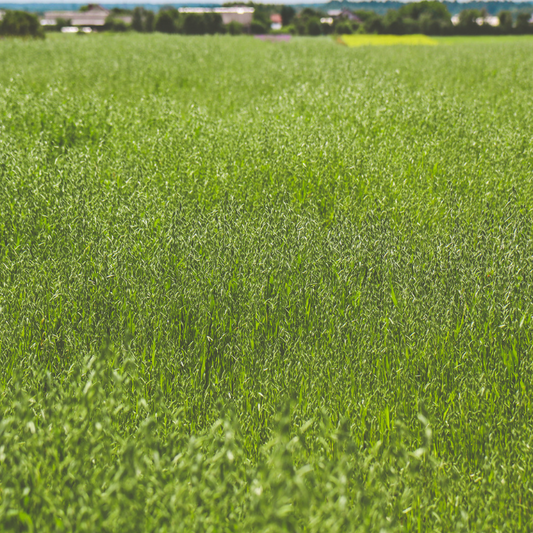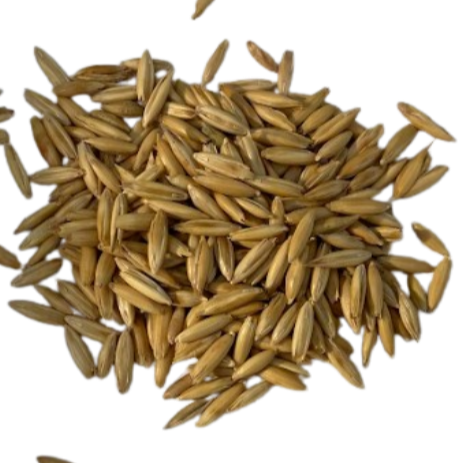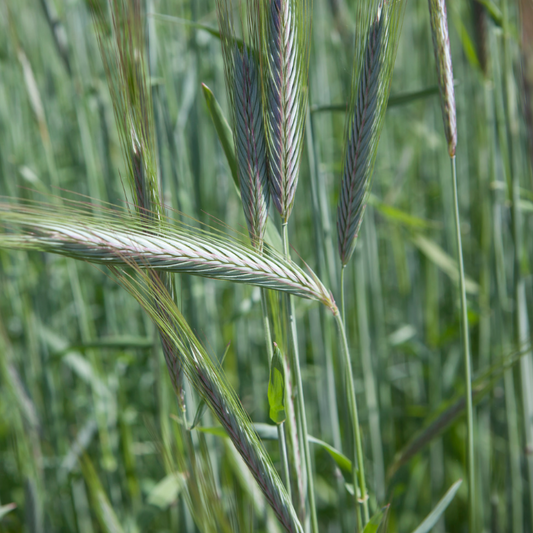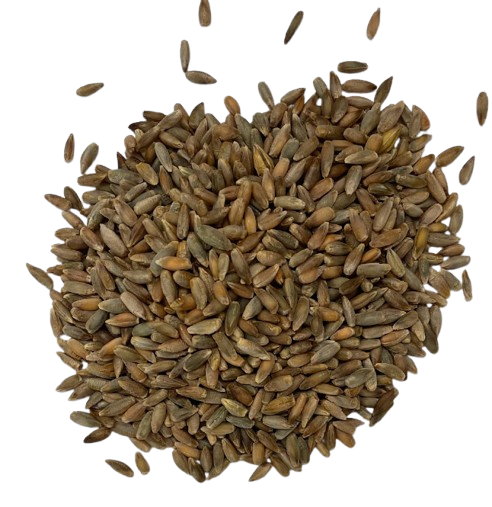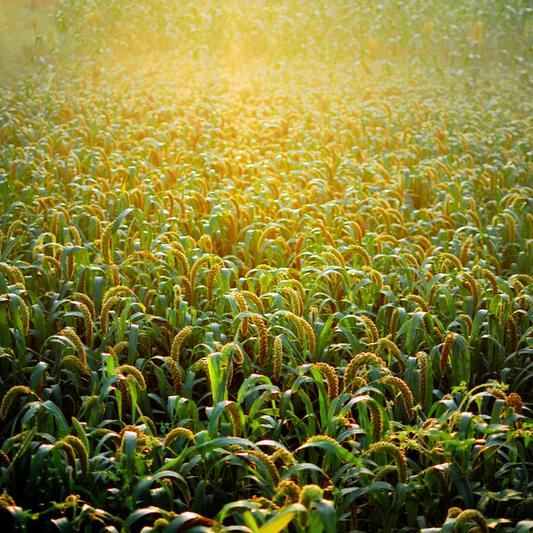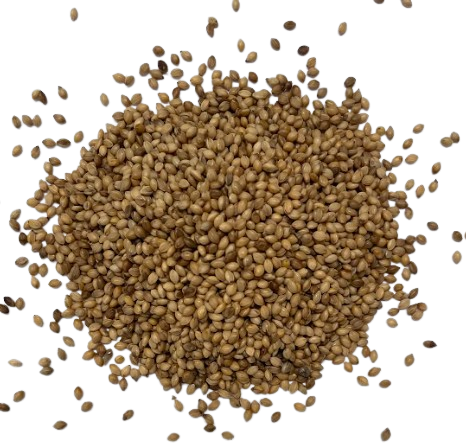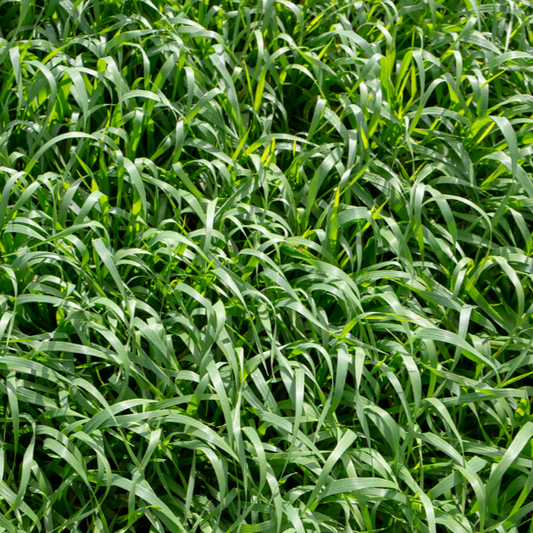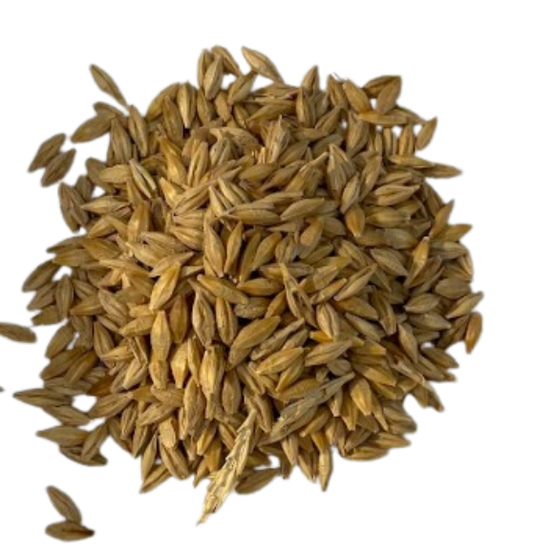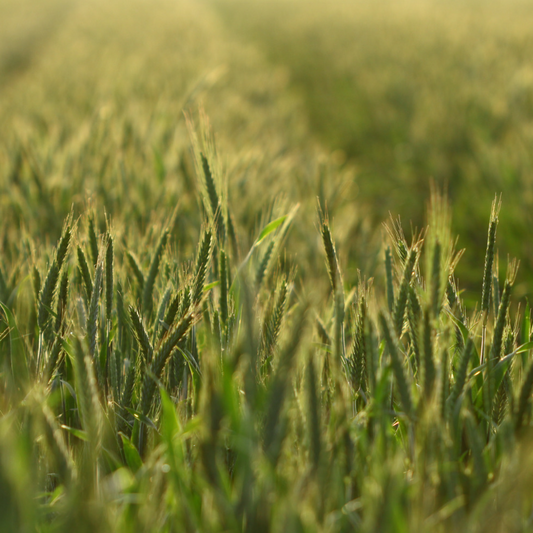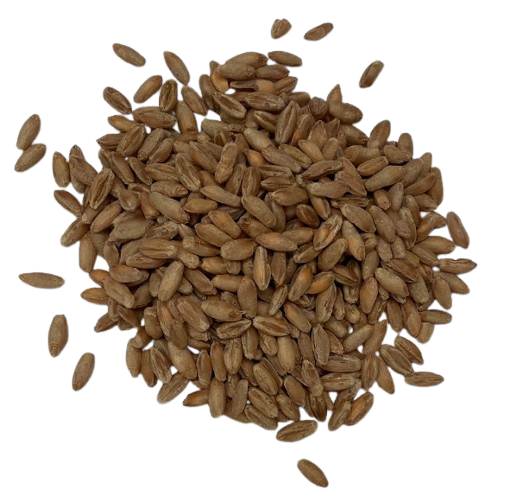Our Forage & Fodder Cereal Seed
Our forage cereals are selected for what they actually deliver in the paddock, not just what looks good on paper. Each variety has its own strengths, and when used well, they can add real value to your seasonal feed planning.
Forage oats are a reliable cool-season performer, known for quick establishment and solid dry matter yields that suit both grazing and silage systems. Barley brings speed to the mix, making it a smart choice for short-term winter feed or early harvest where timing matters. Millet steps in during the hotter months, offering rapid growth and regrowth potential when traditional cool-season species start to fade.
Triticale stands out for its versatility, while ryecorn adds another layer of value, especially in low-fertility or weed-prone paddocks, thanks to its cold tolerance and early spring activity. Each seed comes with clear sowing advice, so you can plan with confidence and get the results your system needs.
Choosing the Right Forage & Fodder Cereals
The right cereal crop depends on what you need it to do. Maybe it's a clean grazing window between rotations, a feed boost before spring kicks in, or a silage cut to get ahead of the next pasture. Cereals are flexible enough to handle all of that without tying up land or complicating your system.
When there's a clear purpose, they slot in easily and give you exactly what you’re after. We can help you work out which species makes the most sense for your conditions and how to get the timing right, so your feed plan stays on track and the crop actually does its job.

